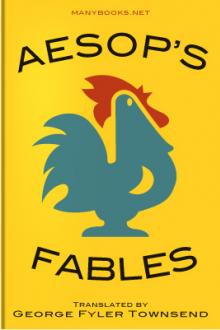Genre - Classic. You are on the page - 7

ldManse. And now--because, beyond my deserts, I was happy enoughto find a listener or two on the former occasion--I again seizethe public by the button, and talk of my three years' experiencein a Custom-House. The example of the famous "P. P. Clerk ofthis Parish," was never more faithfully followed. The truthseems to be, however, that when he casts his leaves forth uponthe wind, the author addresses, not the many who will fling asidehis volume, or never take it up, but the few who

frequently of a hundred times, more labour than the greater part of those who work ; yet the produce of the whole labour of the society is so great, that all are often abundantly supplied ; and a workman, even of the lowest and poorest order, if he is frugal and industrious, may enjoy a greater share of the necessaries and conveniencies of life than it is possible for any savage to acquire.The causes of this improvement in the productive powers of labour, and the order according to which its

at who can."The Fox and the Goat A FOX one day fell into a deep well and could find no means of escape. A Goat, overcome with thirst, came to the same well, and seeing the Fox, inquired if the water was good. Concealing his sad plight under a merry guise, the Fox indulged in a lavish praise of the water, saying it was excellent beyond measure, and encouraging him to descend. The Goat, mindful only of his thirst, thoughtlessly jumped down, but just as he drank, the Fox informed him of the

rds the small hours on a Friday night.I need say nothing here, on the first head, because nothing can show better than my history whether that prediction was verified or falsified by the result. On the second branch of the question, I will only remark, that unless I ran through that part of my inheritance while I was still a baby, I have not come into it yet. But I do not at all complain of having been kept out of this property; and if anybody else should be in the present enjoyment of it, he

fe and children,perceiving it, began to cry after him to return; but the man puthis fingers in his ears, and ran on, crying, Life! life! eternallife! [Luke 14:26] So he looked not behind him, but fled towardsthe middle of the plain. [Gen. 19:17]{19} The neighbours also came out to see him run [Jer. 20:10];and, as he ran, some mocked, others threatened, and some criedafter him to return; and, among those that did so, there were twothat resolved to fetch him back by force. The name of the one

r VI and his son, Cesare Borgia, the Duke Valentino, and these characters fill a large space of "The Prince." Machiavelli never hesitates to cite the actions of the duke for the benefit of usurpers who wish to keep the states they have seized; he can, indeed, find no precepts to offer so good as the pattern of Cesare Borgia's conduct, insomuch that Cesare is acclaimed by some critics as the "hero" of "The Prince." Yet in "The Prince" the duke is in point